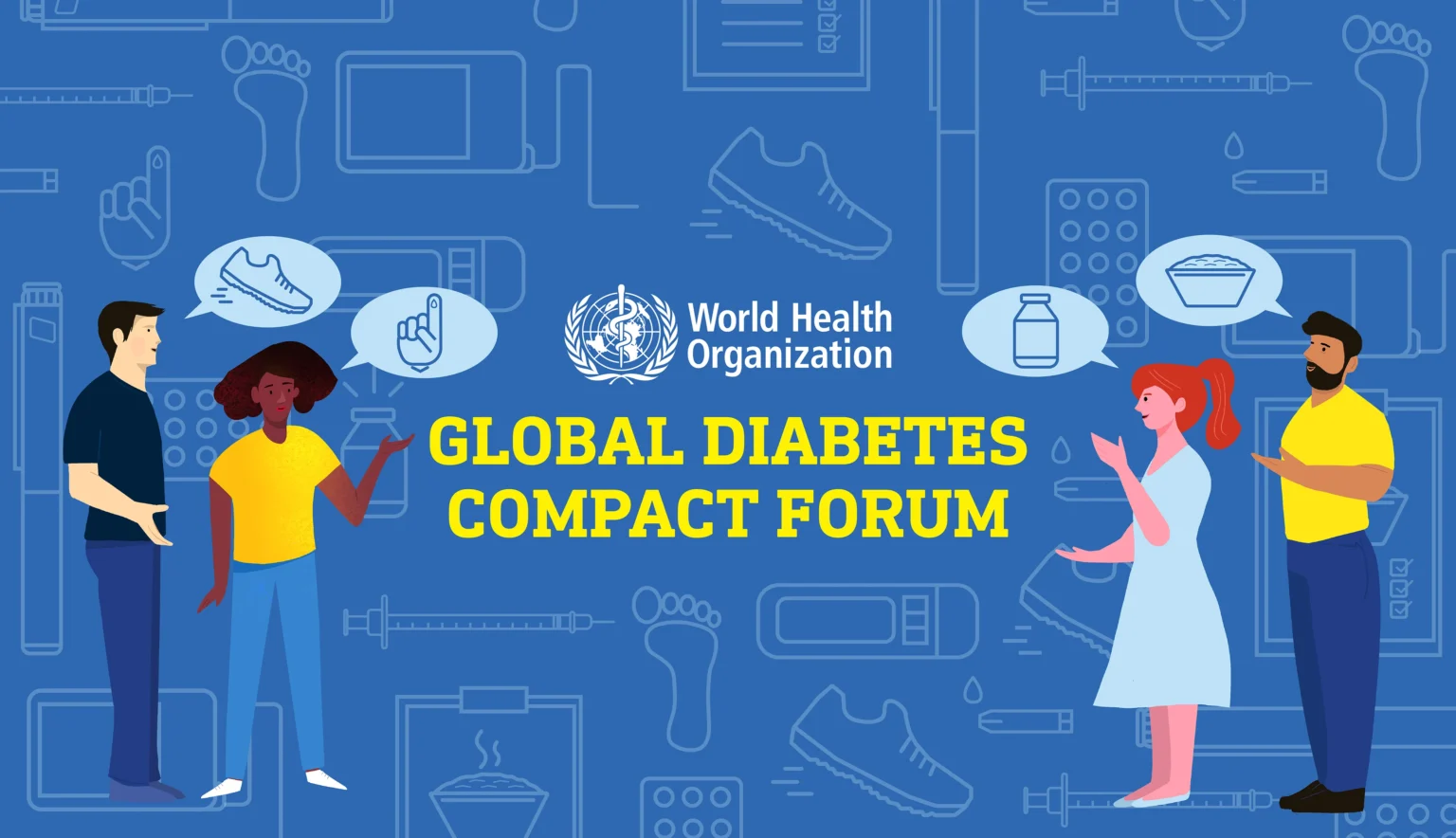In an interconnected world where health challenges know no borders, the message from Dr Rayana Bou Haka, the World Health Organization WHO Representative in Qatar, resonates with clarity, compassion and promise. With an estimated 800 million people worldwide living with diabetes, she underscores not only the magnitude of the challenge, but also the possibility of a better future if we muster collective will and smart strategy. In her view, the journey ahead is not just about statistics or policies but about lives, families and the hope of healthier communities.
In this article, we explore the global diabetes landscape as shared by Dr Bou Haka, examine the impressive and comprehensive strategy adopted by the State of Qatar, and reflect on how prevention, early detection and human centred care can shift the narrative from crisis to hope.
The Global Challenge of Diabetes
Diabetes is no longer a distant or niche health issue. It has arrived firmly in the mainstream of global concern. According to Dr Bou Haka, about 800 million people around the world currently live with diabetes. She highlights that in the Eastern Mediterranean Region where Qatar belongs, the prevalence among adults aged 20 to 79 stands at approximately 17.6 percent, the highest among regions globally.
But behind these numbers lie deeply human stories: individuals who may be unaware of their condition, households demoralised by complications, communities burdened by rising medical costs and diminished quality of life. Dr Bou Haka draws attention to one alarming fact: about one third of cases remain undiagnosed, meaning people are silently living with a condition that can escalate if left unchecked.
She also points to the many complications that travel with diabetes, including retinopathy, kidney disease, neuropathy, dyslipidemia, hypertension, ischemic heart disease and foot problems. In the region, roughly 25 percent of people with diabetes may experience retinopathy, 23 percent kidney disease, and 59 percent hypertension.
The human aspect cannot be overstated. When someone’s blood sugar is poorly managed, the ripple effects can touch their daily work, family life, emotional wellbeing and long term prospects. Dr Bou Haka emphasises that this is not just a medical problem. It is a social, economic and personal one.
She also warns that if current trends continue, the target of reducing non communicable diseases NCDs by one third by 2030 may not be met. For many countries, she projects just about 11 percent achievement of that target without stronger action.
In short, the global challenge of diabetes is vast, complex and pressing, but recognising it openly, as Dr Bou Haka does, is the first step toward change.

Qatar’s Comprehensive Approach: Prevention Awareness and Care
While the global numbers can feel overwhelming, there is optimism and a tangible example right here in Qatar. Dr Bou Haka has described Qatar’s National Diabetes Strategy as comprehensive and commends the country’s holistic approach that emphasises prevention, awareness, quality care, research and information systems.
Prevention and Lifestyle for All
Central to Qatar’s strategy is the belief that many cases of type 2 diabetes are preventable. The country has taken a number of key initiatives, including dedicating a National Sport Day annually and installing exercise equipment in public spaces. These actions encourage regular physical activity among youth and adults alike.
Equally important are the efforts to raise awareness about healthy diet, weight management, smoking cessation and stress reduction. By tackling lifestyle risk factors, the aim is to reduce the number of new cases, slow progression and help people live healthier, more fulfilled lives.
Raising Awareness and Early Detection
Another pillar of Qatar’s approach is early diagnosis. If one third of diabetes cases globally remain undiagnosed, then bridging that gap becomes essential for better outcomes. Qatar is investing in screening programmes, public education campaigns and integration of health checks into standard care.
Quality Healthcare and Integration
Prevention and awareness alone are not enough. They must be matched by strong, integrated healthcare services. Dr Bou Haka notes that Qatar’s healthcare system is advanced, with accessible diagnostic and treatment options for diabetes and its complications. The National Diabetes Strategy in Qatar articulates clear objectives, including making information accessible, ensuring services are designed around people’s preferences, improving workforce capability, and supporting self management of the condition.
Research Data and Personalisation
Qatar is placing emphasis on the role of research, information systems and personalising diabetes care. By understanding genetic, environmental and behavioural factors unique to the population, the country aims to tailor interventions more effectively. The strategy stresses the future state: “There will be multiple tools to support people to manage their own health in a way that suits their personal lifestyle.”
Behavioural Change and Youth Focus
What stands out in Qatar’s strategy is the focus on behavioural change, especially among younger people. By instilling healthy habits early through physical activity, diet education and community programmes, there is hope of reducing the long term burden of diabetes. Dr Bou Haka emphasises this youth empowerment aspect.

The Human Face of the Strategy
Beyond statistics and policies, it is vital to humanise the story of diabetes and of the strategy to manage it. When one thinks of an 800 million person global figure, it is tempting to feel powerless. But Qatar shows that when a country focuses on unity, education and system strengthening, it becomes possible to shift outcomes and real people benefit.
Imagine a middle aged adult who attends a workplace screening, learns they are pre diabetic, gets placed into a proactive lifestyle and monitoring programme, and then avoids serious complications. Imagine a young person whose community sports day becomes a habit, not just an annual celebration, and who carries forward healthy behaviours into adulthood. Imagine families supported by primary care teams who speak their language, understand their culture and provide compassionate, consistent follow up. These are not distant dreams. They are plausible effects of a comprehensive strategy.
Dr Bou Haka’s words reflect that human dimension. It is about diagnosis, yes, but also about follow through, about medication adherence, about lifestyle, about support systems, about access. She insists that prevention investment offers high returns. For every dollar spent on diabetes prevention and obesity reduction, countries can save an estimated 23 dollars in treatment costs.
And that is more than economics. It is about lives saved, futures preserved, burdens lifted, dignity maintained.
Cooperation Responsibility and the Road Ahead
Dr Bou Haka emphasises that tackling diabetes is shared responsibility. Governments, institutions, healthcare professionals, communities and individuals all have roles to play.
In Qatar’s case, the collaboration is evident. Government ministries, healthcare providers, research institutions, youth forums, national associations and international partners are all involved. The strategy reflects multi sectoral engagement, including health, education, community, sports, research, data analytics and beyond.
The road ahead is not without challenges. Even in the Eastern Mediterranean Region, the rate of implementation of programmes and guidelines does not yet exceed 50 percent in many countries. Additionally, diabetes overlaps with obesity, cardiovascular disease, hypertension and broader lifestyle risk factors. Addressing it means addressing the wider ecosystem of health.
Yet, the progress made and the direction taken offer hope. In Qatar, the data systems, preventive programmes and youth centred initiatives offer a model others might consider. Dr Bou Haka notes that the WHO is working on launching a free, open access online diabetes education programme inspired by Qatar’s approach.
Why This Matters for You and Your Community
Whether or not you live in Qatar, the message holds relevance. Diabetes is preventable, manageable and when addressed early, its worst effects can be mitigated. Here are key takeaways that individuals and communities everywhere can embrace:
- Know your risk. If you are over age 35, have a family history, carry excess weight or live a sedentary lifestyle, make screening a priority.
- Embrace movement and healthy eating. Regular physical activity and balanced diet are foundational.
- Stay informed and engaged. Ask questions, join community programmes, take advantage of public health campaigns.
- Self manage and adhere. If you are diagnosed, keep appointments, follow medication, monitor your health and stay connected with your healthcare provider.
- Support youth and community culture. Healthy habits in youth translate into healthier lifetimes. Communities that value wellness shared among neighbours, schools and workplaces can change outcomes.
- Advocate for system wide improvements. Encourage policymakers and stakeholders to prioritise prevention, access, research and integrated care.
In discussing Qatar’s strategy and Dr Bou Haka’s message, the truth becomes clear. The fight against diabetes is not hopeless. When prevention, awareness and healthcare system strengthening come together and when individuals and communities align in purpose, the curve can bend.
Conclusion
Dr Rayana Bou Haka’s reflections remind us that the diabetes challenge, 800 million people strong, is indeed daunting. Yet her optimism about Qatar’s comprehensive strategy tells us that bold action, systemic thinking and human centred care can make a difference.
For Qatar, the path is paved with prevention programmes, public awareness, integrated care, research, youth engagement and community empowerment. For the rest of the world, the message is clear. Progress is possible when strategy is intentional, resources are aligned and individuals are supported.
As we mark global health milestones and reflect on the lives impacted by diabetes, let us carry forward the sense of urgency with compassion, with hope, and with the conviction that better days are ahead for millions of people.
Because beyond the numbers and policies, this is about human lives, real people, families, communities, and the opportunity for a healthier, fuller future.
Do follow Gulf Magazine on Instagram.
Also Read – Qatar’s Hamad International Airport Soars to New Heights



